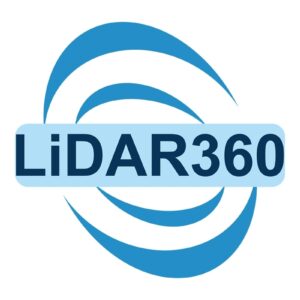Trion Model Software – Pre-processing Software For Trion P1/S1/S2 LiDAR
US$816.00 – US$1,271.00 Excl. GST/VAT
Experience easy point cloud data manipulation and analysis with FJD Trion Model, featuring a user-friendly interface and advanced algorithms. The software provides an all-in-one solution with integrated modules for forestry, drawing, and robot mapping, streamlining the data import and analysis process. Choose FJD Trion Model for versatile, efficient, and high-level integration point cloud processing.
Trion Model Software Introduction
FJD Trion Model is point cloud processing software developed by FJ Dynamics Co., Ltd. (FJDynamics), and can be used to visualize and process point cloud data obtained by a laser scanner. Usually, such point cloud data includes a 3D point cloud and an optional 2D image set. Each point in the point cloud includes its 3D coordinates and other properties, such as intensity and surface normals. A point cloud can be visualized, rotated, translated, zoomed in, and zoomed out in a 3D view area.
The visualization effect can be enhanced in different ways, for example, by changing the point size, intensity, colors, and visual angles. To use FJD Trion Model correctly and efficiently, read this manual before use, so that you can learn its modules, functions, features, and basic operation procedures. All features in this manual are demonstrated in Windows 11. The operations in other operating systems are similar, and are not described again.
Data Source & Format Supported
- Data captured by: Terrestrial SLAM LiDAR Scanning equipment, such as Trion S1 & P1
- Data format supported: las, ply, pts, e57, etc.
Recommended System Requirements:
- Processor: Intel® CoreTM i7-10700 CPU @ 2.90 GHz (or an AMD CPU with equal performance)
- Memory: 32 GB
- Graphics card: NVIDIA GeForce GTX 1650 Ti 4G
- Hard disk drive: 64 GB
- Screen resolution: 1680 × 1050 or above
Functions of Trion Model LiDAR Data Processing Software
Basic Module
Point cloud mapping
Supports offline reconstruction of point cloud data collected by the FJD Trion S1 or FJD Trion P1 laser scanner.
Accuracy verification
Supports plane and elevation accuracy verification, providing users with more accurate and reliable data. Analyzes the point cloud quality by use of horizontal and vertical slices.
View
Sets display colors of the point clouds and changes background color and view angles, providing good user experience.
Point cloud processing
Preprocesses raw point clouds with features such as point cloud segmentation, thinning, clustering and SOR filter to satisfy different scenario requirements.
Mesh processing
Creates triangular meshes from point clouds, and provides mesh smoothing, and mesh sampling, improving data operation fluency.
Measurement
Carries out measurements of point, length, height difference, angle, and area, ensuring data accuracy.
Classification
Carries out classification in multiple indoor and outdoor scenarios to automatically extract walls, floor, ceiling, grounds with different slopes, and trees in point clouds.
Volume calculation
Measures volume of piles such as coal piles, granaries, and construction earthwork.
Measurement
Carries out measurements of point, length, height difference, angle, and area, ensuring data accuracy.
Drawing Module - Floorplan & Elevation Vector File generation from Point Cloud
Create Slice Plane
Create horizontal and vertical slice plane from the point cloud of the building
Automated Contour Extraction
The contour of the generated horizontal plane can be automatically extracted as the floor plan.
Drawing Edit
Line, polyline, circle etc can be drawn on top of the sliced point cloud for the floorplan and elevation plan.
DXF File Export
The extracted and drawn lines can be exported as the vector file with dxf format.
Forestry Module - Tree Segmentation and Tree Properties Extraction
Extract Ground Points
Classifies and extracts ground points from the forestry scenario point cloud. It is critical for segmentation by tree.
Tree Segmentation
Obtains the tree boundary from the point cloud with ground points extracted to segment the point cloud by tree and extract the trees.
Tree Propertities Calculation
Calculates the tree parameters, such as coordinates, tree height, DBH, and crown width, based on the segmentation result.
Trion Model Downloads & Tutorials
Tips
Trion Model Video Tutorials

25:55

12:54

21:34

30:00



Related products
-
LiDAR Point Cloud Processing Software
LiDAR360 MLS Mobile/Handheld LiDAR Point Cloud Processing Software – 1 Year Subscription
US$4,890.00 Excl. GST/VAT Add to cartRated 0 out of 5 -
LiDAR Point Cloud Processing Software
LiDAR360 Aerial LiDAR Point Cloud Processing & Analyzing Software – 1 Year Subscription
US$4,300.00 Excl. GST/VAT Add to cartRated 0 out of 5 -
LiDAR Point Cloud Processing Software
LiPowerline – Powerline Point Cloud Data Analyzing Software – 1 Year Subscription
US$3,150.00 Excl. GST/VAT Add to cartRated 0 out of 5 -
LiDAR Point Cloud Processing Software
PCMaster Pro – Pre-processing Software For RESEPI LiDAR Payload – 1 Year Subscription
US$2,500.00 – US$3,500.00 Excl. GST/VAT View productsRated 0 out of 5





